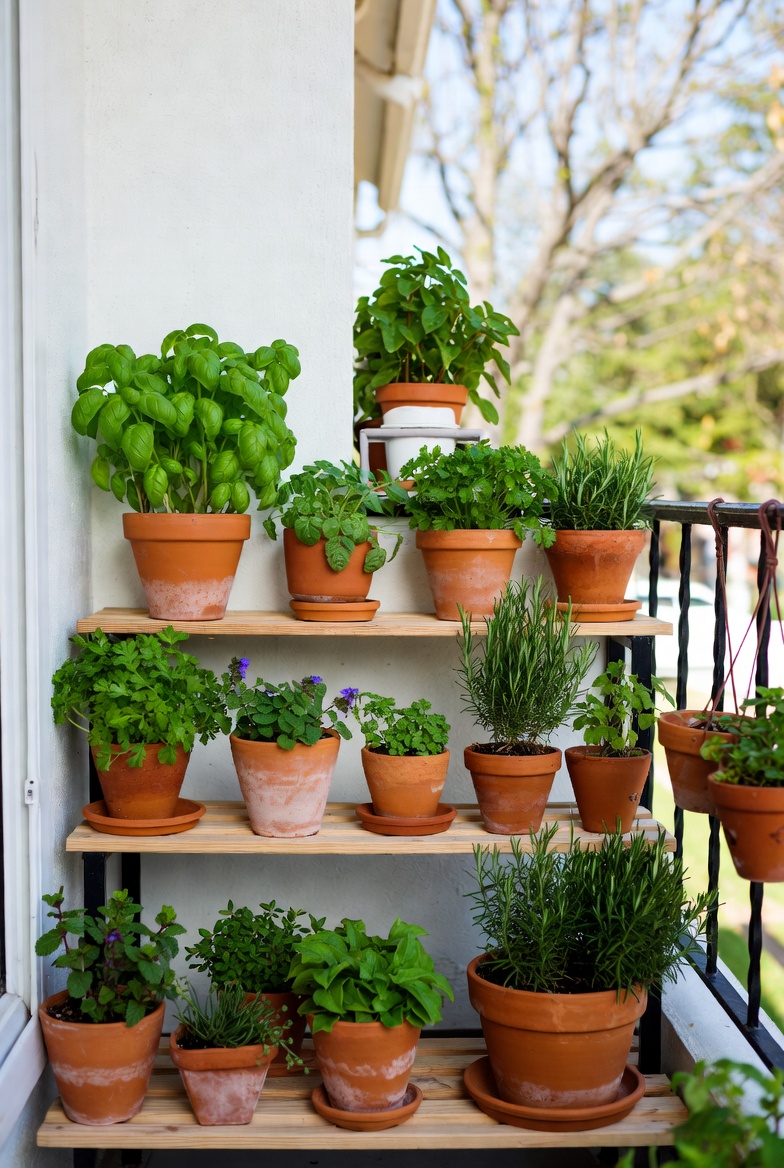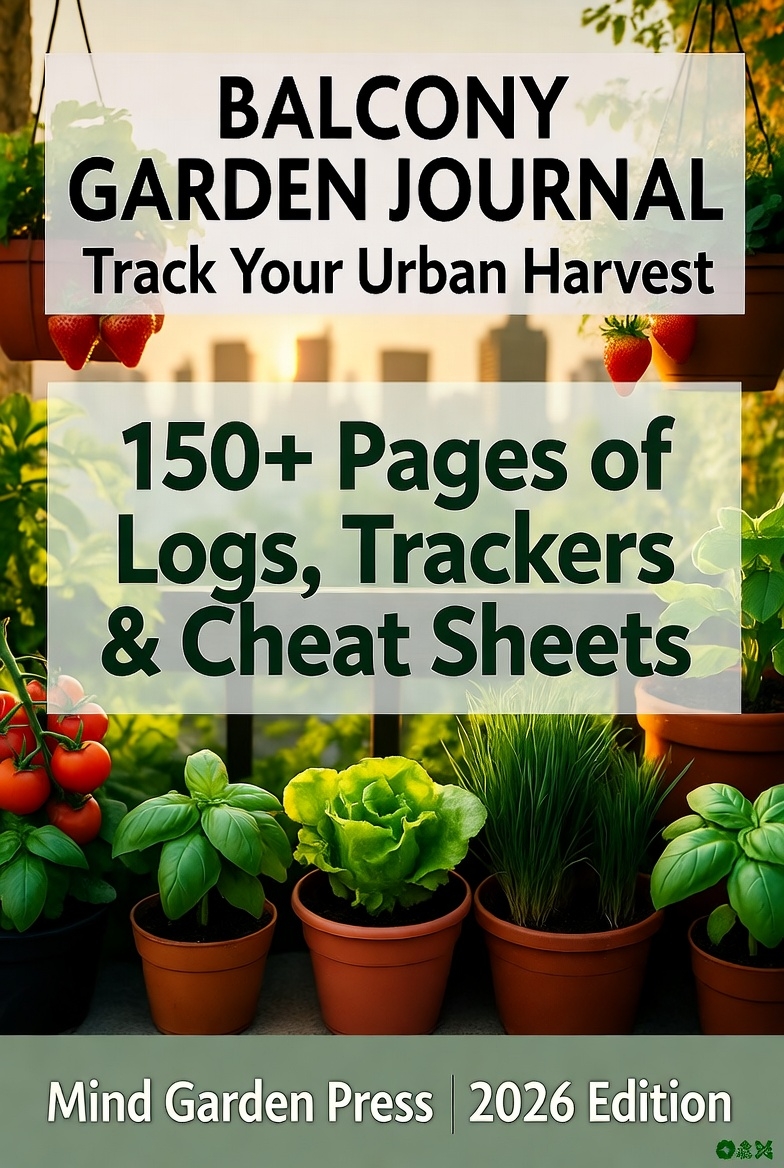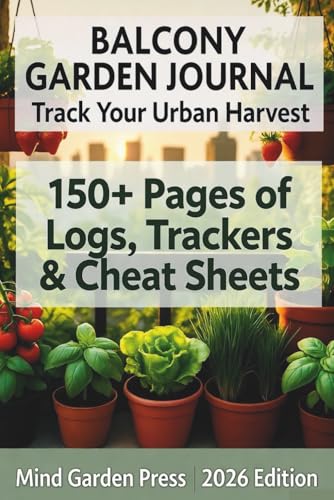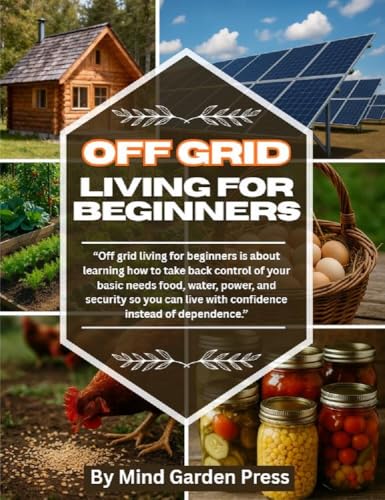
🌿 Sign Up for Your Free 3-Month Gardening Log!
Keep your garden thriving all season long with our 30 Weekly Garden Logs — perfect for tracking plant growth, watering schedules, weather notes, and harvest results.
When you sign up, you’ll also receive a free 3-Month Gardening Log Journal to stay organized and inspired as you grow.
Join below and start logging your garden today!

Indoor/Outdoor Herb Garden Balcony: Seasonal Setup for Year-Round Herbs
An indoor/outdoor herb garden balcony lets you enjoy fresh herbs almost all year long by moving your plants between outdoor sun and indoor shelter. Instead of starting over each season, you create a flexible system where pots shift locations as the weather changes.
This guide will show you how to plan a simple indoor/outdoor flow, choose containers that move easily, and care for herbs as they travel between your balcony and your windowsill. For extra organization, you can pair this plan with my balcony gardening journal (ASIN B0FZVM9K3L) to track what works best each season.
What Is an Indoor/Outdoor Herb Garden Balcony?
Instead of thinking of “summer herbs” and “winter herbs” as separate gardens, an indoor/outdoor herb garden balcony treats everything as one ecosystem. Some pots live outside most of the time, then come indoors when the weather turns cold or extreme.
- Spring–Summer: Most herbs live outside on the balcony in full or partial sun.
- Fall: You gradually bring tender herbs indoors at night or on cold days.
- Winter: The most delicate herbs stay inside near a bright window or under a grow light.
Plan Your Seasonal Herb Flow
Start by deciding where your herbs will live during each season. This simple chart makes it easy to visualize your indoor/outdoor herb garden balcony plan:
| Season | Where Herbs Live | Main Tasks |
|---|---|---|
| Spring | Mostly outdoors | Repotting, fertilizing, planting new herbs |
| Summer | Outdoors on balcony | Watering, shading, regular harvesting |
| Fall | Mix of indoor and outdoor | Bringing tender pots in at night, pruning, cuttings |
| Winter | Indoors near bright windows or grow lights | Light watering, pest checks, planning next season |
Use this as your template and adjust it to match your climate. In milder regions, you can keep hardy herbs outdoors all winter with minimal protection.
Choosing Containers That Move Easily
Because your indoor/outdoor herb garden balcony involves moving pots, choose containers that are:
- Lightweight: Plastic, resin, or lightweight ceramic make moving easier.
- Durable: Able to handle outdoor weather and indoor heating or cooling.
- Well-draining: Drainage holes are essential in every season.
| Container Type | Indoor/Outdoor Advantage | Best For |
|---|---|---|
| Lightweight Plastic Pots | Easy to carry between rooms and balcony | Basil, mint, parsley |
| Resin Planters | Weather-resistant, look like stone but lighter | Rosemary, thyme, sage |
| Small Window Boxes | Can move to a wide windowsill in winter | Mixed herbs and cut-and-come-again greens |
For more ideas on specific containers, see Best Containers for Balcony Herbs.
Transitioning Herbs from Outdoor to Indoor
Moving herbs between outdoor and indoor environments can shock them if done too quickly. Use a gentle, step-by-step transition:
- Clean the pots: Rinse containers and saucers to remove excess dirt.
- Check for pests: Inspect leaves (top and underside) for bugs and rinse if needed.
- Acclimate slowly: Bring herbs indoors for a few hours each day before moving them inside full-time.
- Find bright spots: Place herbs near a sunny window or under a grow light.
- Adjust watering: Indoor soil dries more slowly, so water less frequently.
Light and Water: Indoors vs Outdoors
Your herbs will behave differently indoors than they do on the balcony. Watch for these changes:
- Light: Indoor light is weaker, even near a window. You may need to rotate pots regularly so all sides get sun.
- Water: Indoors, soil often stays moist longer. Check with your finger before watering to avoid soggy roots.
- Airflow: Indoor air can be still and dry. Occasionally opening a window (in mild weather) or using a small fan can help.
For help dialing in your watering routine, visit Watering Tips for Balcony Herb Gardens.
Sample Indoor/Outdoor Herb Garden Balcony Layout
Here’s a simple example of how you might arrange your herbs across the year:
- Spring–Summer (Outdoors): Basil, mint, chives, parsley, thyme, and rosemary on the balcony rail or shelves.
- Fall (Mixed): Basil and mint begin spending nights indoors, while thyme and rosemary stay outside longer.
- Winter (Indoors): A few favorite pots—like basil, mint, and parsley—live near your sunniest window, while hardy herbs rest outside or in a sheltered corner.
Related Balcony Herb Gardening Guides
Use these guides alongside your indoor/outdoor herb garden balcony plan:

Track Your Balcony Garden Progress
Turn your balcony herb garden ideas into a living reality with the Balcony Gardening Journal (ASIN B0FZVM9K3L) — your hands-on companion for planning, tracking, and celebrating every season’s growth.
Record sunlight patterns, watering schedules, weekly notes, and harvests all in one easy place. A perfect match for every cluster guide in your balcony gardening journey.
View the Balcony Gardening Journal on Amazon



















